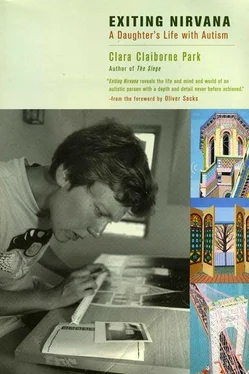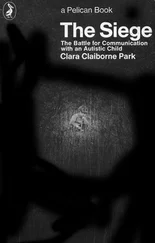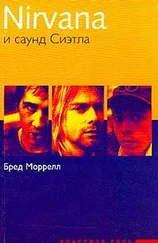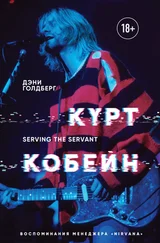Clara Park - Exiting Nirvana
Здесь есть возможность читать онлайн «Clara Park - Exiting Nirvana» весь текст электронной книги совершенно бесплатно (целиком полную версию без сокращений). В некоторых случаях можно слушать аудио, скачать через торрент в формате fb2 и присутствует краткое содержание. ISBN: , Жанр: Психология, на английском языке. Описание произведения, (предисловие) а так же отзывы посетителей доступны на портале библиотеки ЛибКат.
- Название:Exiting Nirvana
- Автор:
- Жанр:
- Год:неизвестен
- ISBN:0-316-69117-8
- Рейтинг книги:4 / 5. Голосов: 1
-
Избранное:Добавить в избранное
- Отзывы:
-
Ваша оценка:
- 80
- 1
- 2
- 3
- 4
- 5
Exiting Nirvana: краткое содержание, описание и аннотация
Предлагаем к чтению аннотацию, описание, краткое содержание или предисловие (зависит от того, что написал сам автор книги «Exiting Nirvana»). Если вы не нашли необходимую информацию о книге — напишите в комментариях, мы постараемся отыскать её.
All illustrations are by Jessy Park.
Exiting Nirvana — читать онлайн бесплатно полную книгу (весь текст) целиком
Ниже представлен текст книги, разбитый по страницам. Система сохранения места последней прочитанной страницы, позволяет с удобством читать онлайн бесплатно книгу «Exiting Nirvana», без необходимости каждый раз заново искать на чём Вы остановились. Поставьте закладку, и сможете в любой момент перейти на страницу, на которой закончили чтение.
Интервал:
Закладка:
We had held off introducing negative points for the first two months of contracts, until our warm Sunday routines had become habitual. Jessy didn’t like making her first subtractions, but among all the positives she soon got used to them. It was always possible to redeem a lapse by a Big Job, or using tenses correctly (we had put grammar in the contract), or diving from the side of the pool. Nor was it especially hard for her to control her more innocuous misbehaviors — those that bespoke not so much autism itself as immaturity and developmental delay. She could stop staring at dog feces if she got points for doing so. She could manage not to talk about people’s illnesses or handicaps; a penalty for mentioning the art teacher’s diabetes in front of him never had to be imposed. But points had much less power over the world within. The behaviors related to her obsessions and compulsions were much more difficult for her to control. Yet these were the most disconcerting, the most unpredictable, the most bewildering of all.
She cried when her superball didn’t reach the seventh bounce. She cried when someone took her special seat (only she knew what made it special) on the school bus. She cried about «forget ting to look» at a particular billboard on her route. She cried about politenesses. She cried when somebody had a cold. She cried whence had a cold. And how she cried!
Much later, after she’d seen Rain Man, Jessy would call these hypersensitivities her «autisms». [34] Hypersensitivities, of course, are characteristic of autism. But these tend to be straightforwardly physical — intolerance of certain sounds, for instance, or textures. Jessy is reasonably comfortable in the physical world; she seems indifferent to extremes of heat or cold, for all her interest in the Weather Channel. Her sensitivities are not of the body but of the mind.
We called them her «allergies». The word was more than a metaphor; her responses were as instant, as involuntary, as any allergic reaction. «Wee-alo, wee-alo», she’d cry, «la, la», her face distorted, her heart pounding, every muscle in her body tensed, her mouth open so wide we could see the flattened tongue within. Desolating for her, terrifying for the stranger, such extreme reactions overwhelmingly suggested a neurological base. So too with the positive reactions, with the shivering, unbearable intensity with which she experienced the too-good. She didn’t cry about too-good names and numbers and special words. But she wouldn’t say them, and lest she should hear them she covered her ears, smiling her secret smile. Harmless as that might seem at home, even, in moderation, charming, it was destructive of the focused attention necessary for school tasks. When Jessy was in Nirvana, she wasn’t learning.
Yet even over autistic behaviors the contract had some power. At the very least it made her conscious of what had been wholly unconscious. On one contract — it was the eighteenth month — I wrote down Jessy’s own triumphant words for her to savor: «This is the first time I didn’t mumble for whole week!» Though she mumbled the next week and many times thereafter, that was all right. Rome wasn’t built in a day.
Jessy’s «allergies» would have been unendurable for her and all around her if they had lasted. But though the pain was acute, it was transitory; when it was over it was over. An hour later she would be eager to talk about the behavior, the circumstances, the penalty, not merely without resentment but with enthusiasm. «I threw a scene in school. And I made a scream and a cry for two and a half hours. And I mumbled. And bang a chair and I broke a chair. And I bang the door! Crying for a long time is serious because it makes people so nervous they have to leave!» Jessy was full of smiles as she told me this. The contrast between the original distress and the subsequent cheerfulness was so striking that we began to think about how social unconsciousness could reduce the power of pain.
So much of our pain is rooted in the responses of other people, or rather, in our perceptions of what those responses are or (even more painful) what they may be. Will people hate me? Not invite me to their party? Will they think I’m babyish? Worst of all, will they laugh at me? Jessy had many anxieties, but these were not among them. Autism was named from the Greek word for «self», and self-involvement has its advantages. The common description for an autistic child is «seems to be in a world of his own». Jessy was the center of her universe; now her own behavior had become not only a focus of attention, but a rich source of interest. We felt for Jessy when she cried and cried. We certainly felt for her teachers and helpers; we knew that for what Jessy put them through, «nervous» was a mild word, and that they did not recover from the experience as quickly as she did. Still, smiles followed tears; they kept working and Jessy kept trying, and together they moved forward.
Mingling pain and pleasure, contract and points, made possible the slow, partial, yet significant social gains of Jessy’s adolescence, while the social unawareness that rewards and penalties could scarcely touch preserved her from what would otherwise have been a continual series of assaults on her self-esteem. Children can be cruel in the face of the abnormal, but Jessy paid no attention to the names they called her. It was her friends from the art room who felt the hostility, not only that directed at Jessy — which, confronted with her indifference, soon stopped — but that which was deflected to them.
Anna and Diana had become the special ed teacher’s assistants, and they paid a price. They were followed into the girls’ room, peeked at in the stalls, called whores who loved mentals. And here I must pay another of the tributes that are integral to this story. For of all us amateur behavior therapists, Anna and Diana were the bravest and the toughest and the most successful. I didn’t see what they did at school; I heard of the ugly names only much later. But for two summers they lived with us, and I still marvel at what they accomplished. In fact as I return to the notes I wrote then, I wonder if I haven’t undersold the power of behavior modification. It may well be that the limitations I have just attributed to the method, or to the intractability of autism, were in fact my own. For with counter and contract and humor and affection and teenage resilience, Anna and Diana took on autistic behaviors — not all of them but a lot of them — and triumphed. By the end of the first summer, Jessy, with points for Trying a New Food, was eating almost everything. She was no longer insisting that our salads contain only four stereotyped ingredients or that her food be served on her octagonal plate. As a bonus, that was the summer the twins set her to portraiture — for a reward, of course.
Anna and Diana were much better than I was at thinking up rewards. Points were delightful when there were enough of them, but so were visits to the ice-cream parlor and the shopping trips Jessy loved and I hated. So was fun — fun that comes so much easier to teenagers than to a fifty-year-old mother. Watching the twins with Jessy, seeing that they really liked being with her, I realized once more what we are so ready to forget under stress, the supreme importance of gaiety and laughter. There is no more useful tool in living with autism than a kind of rollicking high spirits. «Assume a virtue if you have it not», Hamlet told his mother. If you don’t feel like laughing, ham it up anyway. Laugh and the world laughs with you. To add glumness to dis-ability is to double its crippling power. Jessy’s cheeriness still smooths her way.
But the summer wasn’t all fun. Anna and Diana were also more steadfast in imposing penalties than I had been. Any account of our experience of behavior modification would be incomplete without Jessy’s hellos — not the automatic greeting she learned to make, but something very different. The hellos were so ingrained, so long established, that I had resigned myself to the idea that we, and Jessy, would have to live with them for the rest of our lives.
Читать дальшеИнтервал:
Закладка:
Похожие книги на «Exiting Nirvana»
Представляем Вашему вниманию похожие книги на «Exiting Nirvana» списком для выбора. Мы отобрали схожую по названию и смыслу литературу в надежде предоставить читателям больше вариантов отыскать новые, интересные, ещё непрочитанные произведения.
Обсуждение, отзывы о книге «Exiting Nirvana» и просто собственные мнения читателей. Оставьте ваши комментарии, напишите, что Вы думаете о произведении, его смысле или главных героях. Укажите что конкретно понравилось, а что нет, и почему Вы так считаете.



![Майкл Азеррад - Come as you are - история Nirvana, рассказанная Куртом Кобейном и записанная Майклом Азеррадом [litres]](/books/392533/majkl-azerrad-come-as-you-are-istoriya-nirvana-ra-thumb.webp)



![Эверетт Тру - Nirvana - Правдивая история [litres]](/books/399241/everett-tru-nirvana-pravdivaya-istoriya-litres-thumb.webp)




